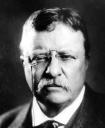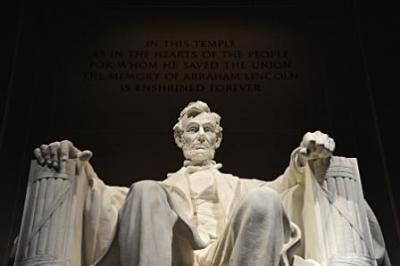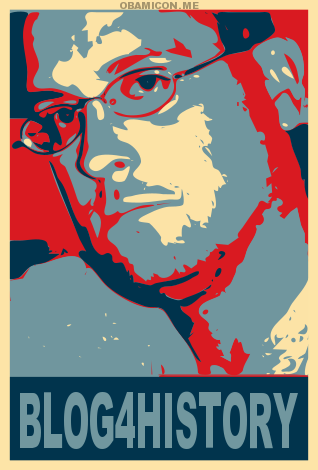121 Copies!
Well, I have no idea how this ranks on the book-o-meter, but I received my first royalty check from my publisher, McFarland. According to their statement, they have sold 121 copies of The 11th Wisconsin in the Civil War. My first check was far more substantial than I ever thought I would get. As I have said before, like most history authors I wrote this book out of passion for that regiment and my desire to see their story told. Never thought I’d sell more than a few copies. I know, far cry from the history books (authors) that sell thousands of copies, but I was still very pleased and surprised.
Confederate President Davis’ Slave a Spy!
I was not aware of this.
From CNN (link):
WASHINGTON (CNN) — William Jackson was a slave in the home of Confederate president Jefferson Davis during the Civil War. It turns out he was also a spy for the Union Army, providing key secrets to the North about the Confederacy.
Jackson was Davis’ house servant and personal coachman. He learned high-level details about Confederate battle plans and movements because Davis saw him as a “piece of furniture” — not a human, according to Ken Dagler, author of “Black Dispatches,” which explores espionage by America’s slaves.
“Because of his role as a menial servant, he simply was ignored,” Dagler said. “So Jefferson Davis would hold conversations with military and Confederate civilian officials in his presence.”
Dagler has written extensively on the issue for the CIA’s Center for the Study of Intelligence . »
In late 1861, Jackson fled across enemy lines and was immediately debriefed by Union soldiers. Dagler said Jackson provided information about supply routes and military strategy.
“In Jackson’s case, what he did was … present some of the current issues that were affecting the Confederacy that you could not read about in the local press that was being passed back and forth across local lines. He actually had some feel for the issues of supply problems,” Dagler said.
Jackson and other slaves’ heroic efforts have been a forgotten legacy of the war — lost amid the nation’s racially charged past and the heaps of information about the war’s historic battles. But historians over the last few decades have been taking an interest in the sacrifice of African-Americans during those war years.
Jackson’s espionage is mentioned in a letter from a general to Secretary of War Edwin Stanton. Maj. Gen. Irvin McDowell refers to “Jeff Davis’ coachman” as the source of information about Confederate deployments. VideoWatch grandson of slaves: “They call me Little Man” »
Dagler said slaves who served as spies were able to collect incredibly detailed information, in large part because of their tradition of oral history. Because Southern laws prevented blacks from learning how to read and write, he said, the slave spies listened intently to minute details and memorized them.
“What the Union officers found very quickly with those who crossed the line … was that if you talked to them, they remembered a great more in the way of details and specifics than the average person … because again they relied totally on their memory as opposed to any written records,” he said.
Jackson wasn’t the only spy. There were hundreds of them. In some cases, the slaves made it to the North, only to return to the South to risk being hanged. One Union general wrote that he counted on black spies in Tennessee because “no white man had the pluck to do it.”
No one was better than Robert Smalls, a slave who guided vital supply ships in and out of Charleston Harbor in South Carolina. He eventually escaped and provided the Union with “a turning of the forces in Charleston Harbor,” according to an annual report of the Navy secretary to President Lincoln.
“A debriefing of him gave … the Union force there the entire fortification scheme for the interior harbor,” Dagler said.
One of the most iconic spies was Harriet Tubman, who ran the Underground Railroad, bringing slaves to the North. In 1863, she was asked by the Union to help with espionage in South Carolina. She picked former slaves from the region for an espionage ring and led many of the spy expeditions herself.
“The height of her intelligence involvement occurred late in 1863 when she actually led a raid into South Carolina,” Dagler said. “In addition to the destruction of millions of dollars of property, she brought out over 800 slaves back into freedom in the North.”
As the nation marks Black History Month in February, Dagler said that history should include the sacrifices of the African-Americans who risked their lives for their nation. Many paid the ultimate sacrifice.
“They were all over the place, and no one [in the South] considered them to be of any value. Consequently, they heard and saw virtually everything done by their masters, who were the decision-makers,” Dagler said.
Whatever happened to William Jackson, the spy in Jefferson Davis’s house?
Unfortunately, that remains a great unknown.
“He simply disappeared from history, as so many of them have.”
CNN’s Wayne Drash contributed to this report.
Taking Chance
Taking Chance (HBO) is the true story of the experiences of Marine Lt. Col. Mike Strobl, who escorted Chance Phelps, a 19-year-old Marine killed during a 2004 firefight, home to Wyoming. Strobl volunteered to escort Chance because he thought the young man was from Clifton, Colorado and Strobl was from that part of the state. Chance went to school his senior year at Palisade High School, not 20 minutes from where I am writing this. He also played football for the Bulldogs. Palisade has one of the top 3-A football programs in the state and I have regularly taken my son to their games since the late 90s. Though I obviously had no idea who Chance was, I certainly would have seen him play there in Grand Junction where Palisade played their home games. Anyway, when I heard about this movie at the Sundance Film Festival, I knew I had to see it. It is stories like this that reaffirm how truly great out country is, and how strong our people are. We are not cowards in any shape or form. We do not require government to save us, we can overcome and help one another.
If you get a chance, watch it tonight, here’s the trailer:
The Chicago Tea Party
Can’t embed the video, but for those who are interested this from the CNBC website:
Where Does Your Favorite President Rank?



“Presidents Day” was assigned to February 22 by Congress in 1885 and declared a national holiday. It was intended to honor our nation’s first President, George Washington. But also, about this time, there was a movement to honor Lincoln on this same day as well.
So in honor of Presidents Day, C-SPAN surveyed historians to create a list ranking all the Presidents of these United States. Here’s their Top 10:
1. Abraham Lincoln
2. George Washington
3. Franklin D. Roosevelt
4. Theodore Roosevelt
5. Harry S. Truman
6. John F. Kennedy
7. Thomas Jefferson
8. Dwight D. Eisenhower
9. Woodrow Wilson
10. Ronald Reagan
Can’t argue with the list, seems reasonable. Lincoln faced probably the most difficult crisis any of the President’s had. Washington, the closest thing we ever had to an Aristocrat as a leader, yet honorable and established our time honored tradition of peaceful transition of power. And FDR, his leadership during WW2 kept America together.
My Top Three, in no particular order:
1. Washington
2. Lincoln
3. T. Roosevelt
Spending/Stimulus Bill Passes
Here are some news stories my economics class viewed today and discussed:
Lobbyists had Bill Before Lawmakers Did…
Our Opinion: Stimulus bill flawed, but it should get OK
Worker-friendly stimulus plan offers wealth of job-related aid
Will the stimulus actually stimulate?
Lots of different opinions. I was recently accused of being a “New Deal Denier” by another blogger. There is no evidence agreed on involving anything close to consensus from economists or historians on the success or failure of the New Deal. It really seems to come down to one’s political view point.
Have to remove that from the classroom to get a real sense of it.
So instead of debating the issue, I had my economics class came up with an alternative, and they did, one that is interesting. Say the government created a 2-3 month tax holiday? (They borrowed the idea from a U.S. Congressman.)
According to the population clock at the U.S. Census Bureau there are about 306,000,000 people in the United States. We could not find how many working American’s there are. I’m sure the data is there.
We did find some other data:
Of the population, workers pay $101.6 billion per month in personal income tax and $65.6 billion per month in FICA tax. That’s $167 billion per month, times three months is $501 billion dollars. Consumers will hopefully spend more. We said “hopefully” as no one really knows what will happen with the current stimulus bill, thus ours was hypothetical as well.
By taking a tax holiday this money is in consumer’s pockets almost immediately. Combine this with some kind of stimulus package (that can only make an impact slowly) to create jobs seemed like the best course of action according to my 16 and 17 yr old students.
Now, I’m not an economist, I only play one Monday through Friday, but I am a thinker, as are my students. For me, I would much rather follow my student’s plan than the one Congress has passed.
Lincoln a Racist? What, You’re Kidding me!!
 Perhaps I am not aging like a fine wine (nearing 40 in a few weeks) and I am therefore becoming cranky, no stinky. I am starting to lose patience with certain things and this is one of them, questions like “Was Lincoln a Racist?”
Perhaps I am not aging like a fine wine (nearing 40 in a few weeks) and I am therefore becoming cranky, no stinky. I am starting to lose patience with certain things and this is one of them, questions like “Was Lincoln a Racist?”
Hello, did he live in the 19th Century!? How could he have not been to some degree racist!? The entire North American Continent was white supremest in some form. Sure, you could have been an abolitionist, but that don’t mean you’d want a black person as a neighbor. It’s the sad fact of the day. Can we move on please? Can we see the progressive thinker that Lincoln was and appreciate him for that. Lincoln was indeed not perfect, no one ever is, but he sure became about as fine a President as we ever had!
Here’s a chunk from the article I am loathing (note, Henry Louis Gates Jr., the author doesn’t take this peace 100% where I thought he was, but it still irritated me.)
One rainy Sunday afternoon in 1960, when I was 10 years old, I picked up a copy of our latest Reader’s Digest Condensed Books, and, thumbing through, stumbled upon Jim Bishop’s The Day Lincoln Was Shot, which had been published in 1955 and immediately became a runaway bestseller. It is an hour-by-hour chronicle of the last day of Lincoln’s life. I couldn’t help crying by the end.
But my engagement with the great leader turned to confusion when I was a senior in high school. I stumbled upon an essay that Lerone Bennett Jr. published in Ebony magazine entitled “Was Abe Lincoln a White Supremacist?” A year later, as an undergraduate at Yale, I read an even more troubling essay that W.E.B. Du Bois had published in The Crisis magazine in May 1922. Du Bois wrote that Lincoln was one huge jumble of contradictions: “he was big enough to be inconsistent—cruel, merciful; peace-loving, a fighter; despising Negroes and letting them fight and vote; protecting slavery and freeing slaves. He was a man—a big, inconsistent, brave man.”
So many hurt and angry readers flooded Du Bois’ mailbox that he wrote a second essay in the next issue of the magazine, in which he defended his position this way: “I love him not because he was perfect but because he was not and yet triumphed. ….”
To prove his point, Du Bois included this quote from a speech Lincoln delivered in 1858 in Charleston, Ill.:
“I will say, then, that I am not, nor ever have been, in favor of bringing about in any way the social and political equality of the white and black races—that I am not, nor ever have been, in favor of making voters or jurors of Negroes, nor of qualifying them to hold office, nor to intermarry with white people; and I will say in addition to this, that there is a physical difference between the white and black races which I believe will forever forbid the two races living together on terms of social and political equality. And inasmuch as they cannot so live, while they do remain together there must be the position of superior and inferior, and I, as much as any other man, am in favor of having the superior position assigned to the white race.”
Say what? The Lincoln of 1858 was a very long way from becoming the Great Emancipator!
So which was the real Lincoln, the benevolent countenance hanging on the walls of black people’s homes, the Man Who Freed the Slaves, or this man whom Du Bois was quoting, who seemed to hate black people?
Yes, the 1858 speech Lincoln gave in Charleston, Ill. was a just crazy if you’re not cognizant of history and what was going on at the time. But that last comment is new to me. Lincoln hated black people? What? Was he racist or a white supremacist, sure and maybe. I have covered this before. I am just so tired of this hyperbole. Lincoln’s now a hate monger.
Final tidbit from this peace:
In the collective popular imagination, Abraham Lincoln—Father Abraham, the Great Emancipator—is often represented as an island of pure reason in a sea of mid-19th-century racist madness, a beacon of tolerance blessed with a cosmopolitan sensibility above or beyond race, a man whose attitudes about race and slavery transcended his time and place. These contemporary views of Lincoln, however, are largely naive and have almost always been ahistorical.
I can’t recall in recent time, the last 20+ years, where I read a newly published book or was in a classroom where a teacher talked about Lincoln on such simplistic terms as the “Great Emancipator.”
Can we give this a rest!!!

